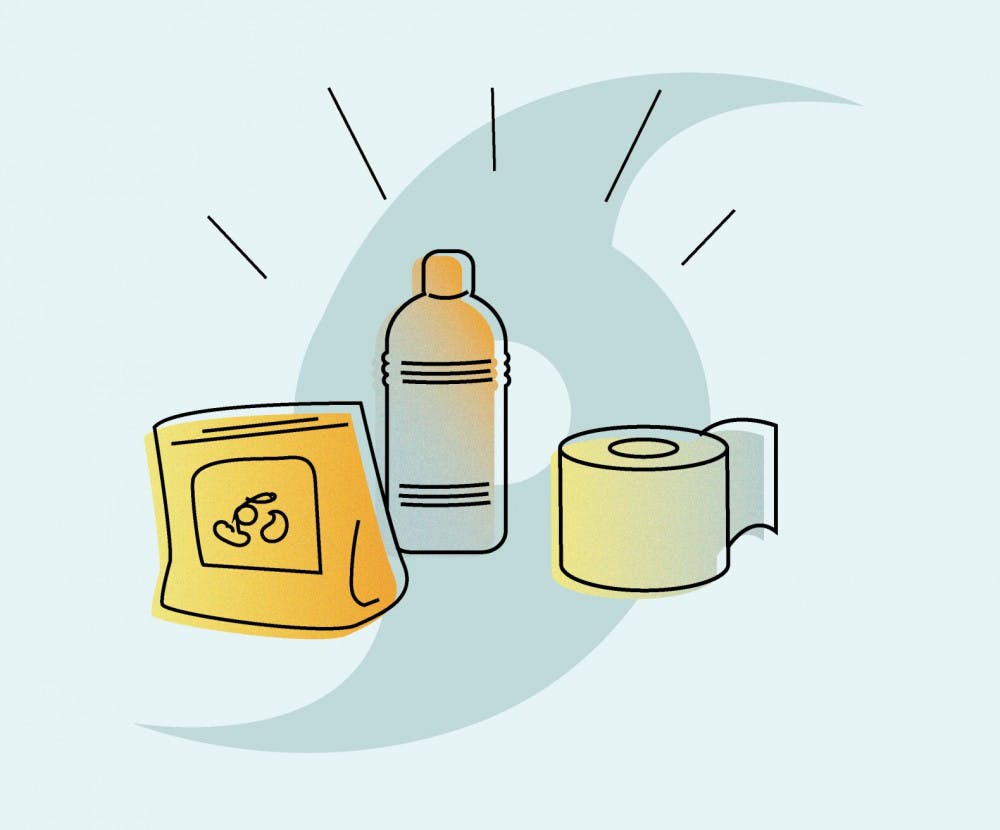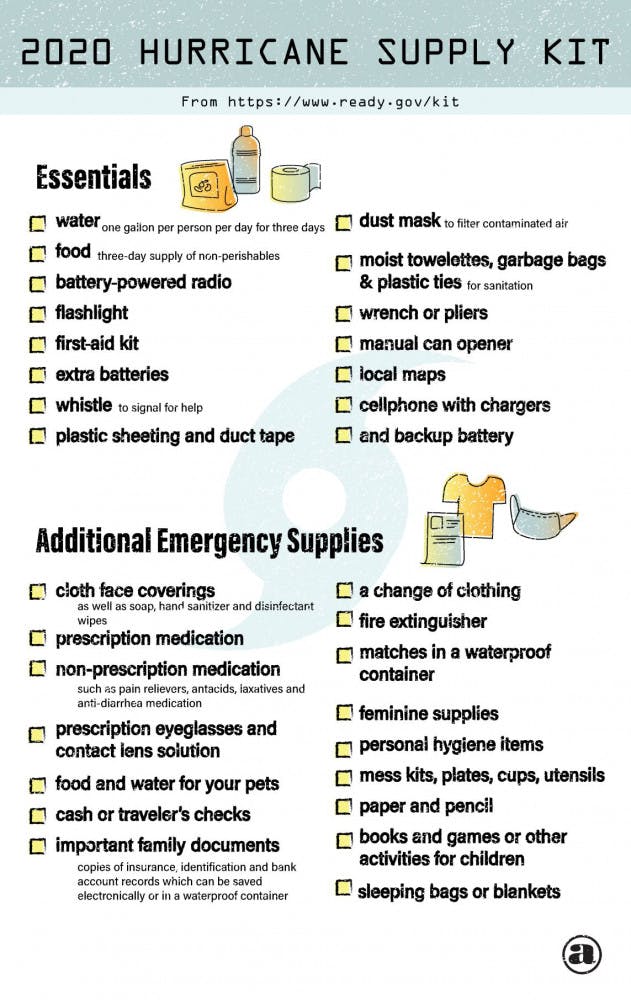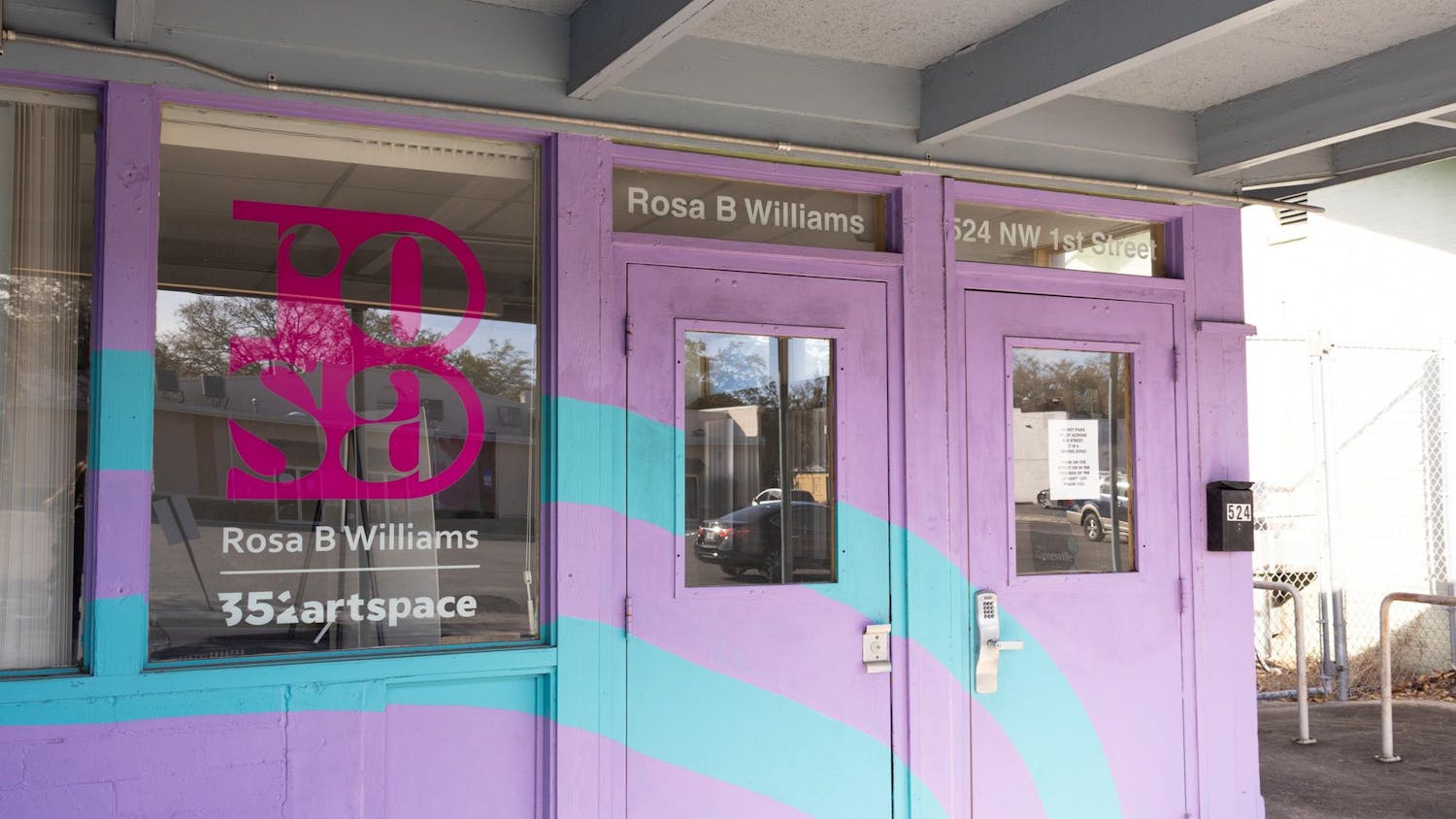
Tropical storm Isaias didn’t hit Alachua County, but hurricane season is here to stay.
Alachua County Emergency Management Director Hal Grieb said hurricane season began June 1 and will last until Nov. 30, but the peak of hurricane season will continue in the area until about September. Emergency Management is tasked with coordinating emergency plans for potential major weather situations.
The National Oceanic and Atmospheric Administration Climate Prediction Center, a section of the National Weather Service, predicted that there’s a 60 percent chance that the hurricane season will be above-normal this year.
All the more reason that residents should prepare for potential severe weather situations like hurricanes and tropical storms, Grieb added.
Part of the county’s plan is AlertAlachua, an emergency notification system anyone can sign up to receive critical information in dire situations via phone, text or email, Grieb said. In addition to severe weather warnings, the alerts inform residents of road closures, missing persons and evacuations of buildings. Those who aren’t county residents can also sign up for local alerts via www.alertflorida.com.
UF Emergency Management Assistant Director Francine Vincent said students should download the GatorSAFE app via Google Play and the Apple App Store to view the latest storm information posted, or visit UF’s emergency management website to learn about current storm tracking.
“Know your home. Know your zone,” she said.
Students need to plan where they would shelter during a weather threat, Vincent said. Students who live on campus would stay in residence halls unless the university decides otherwise, but students living off campus should find out how old their residence is for safety reasons.
If a hurricane hits Alachua County during the COVID-19 pandemic, UF Emergency Management is prepared and is working with UF Health, the UF Student Health Care Center and campus medical volunteers to ensure safety, she said.
“The reason we established shelters is because we didn’t want to burden the county of housing the immense amount of students and staff and faculty that we have here in the university,” she said, adding that it would allow the county to focus on its residents.
If shelters open, masks will be provided, she said. UF already planned a screening process as well as separate shelters for COVID-19 positive patients and those at high risk of contracting the virus, she added. Medical staffers will work in the shelters.
Grieb encouraged residents to stay at home or with family instead of a shelter, if possible, so that county shelters could be a solution for those without other options.
“With emergency shelters, that’s more of the lifeboat, not the love boat,” he said.
The amount of shelters available will depend on the storm’s projected impact, he added. Shelter information will be posted on the county’s social media. Residents can also call the county’s 311 critical information line for shelter emergencies.
The plan to open shelters also includes providing personal protective equipment, such as face coverings, and ensuring social distancing, he said.
In a press release, the county listed recommended items for a basic emergency supply kit. A few items included are a gallon of water per-person, per-day for drinking and sanitation, a three-day supply of non-perishable food, first-aid kits, flashlights and batteries.

The U.S. Department of Homeland Security also recommends making digital copies of valuable documents, like identification, or saving hard copies in a waterproof container and having medication and additional supplies ready.
Everyone, especially students, should always have at least one kit with essential survival items to last at least a week, Grieb said. He said he recommends those who travel often prepare a small kit for the car.
If kit items aren’t affordable, he said residents and students should prioritize and buy items over time. He also recommended students and those in town temporarily purchase renter’s insurance, so that personal items are insured.
Vincent agreed, adding that students should ensure that the insurance covers flooding, especially if they live on the first floor of a building.
While UF Emergency Management doesn’t have free items for students, she said other on-campus services may be able to help.
The Alan and Cathy Hitchcock Field & Fork Pantry, located at 564 Newell Drive, has offered free food and supplies to students, faculty and staff since 2015. Free items include non-perishable food, toiletries and fresh produce donated by UF Farm and Garden.
If students, faculty and staff — regardless of financial background — are concerned about food and supplies during hurricane operations, they may visit the pantry and provide their Gator 1 ID to receive pre-bagged items.
“As an individual living in Florida, the privilege of the beauty of the state is kinda being prepared,” Grieb said. “That’s why we always ask people to have a plan.”

Asta Hemenway is a third-year senior majoring in Journalism. Born in Tallahassee, she grew up Senegalese American. When she’s not writing or doing school, she loves watching Netflix and Tiktok in her spare time.





